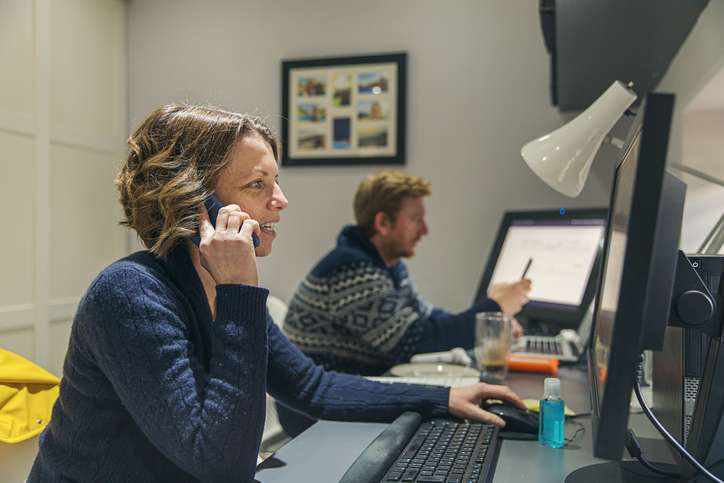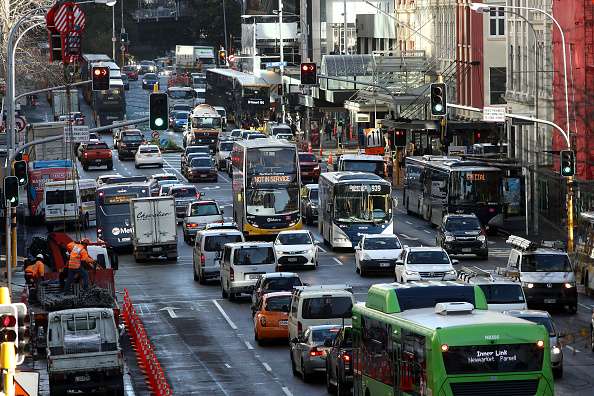As AMP Wealth Management joins the move from city centres to the suburbs, real estate experts say big companies moving out of CBDs is likely to increase.
In Wellington, Government agencies and companies with global links have embraced staff working from home, and not all because of Covid 19 restrictions.
Seismic issues and congestion are at play, too, says Ryan Johnson, national director of commercial and industrial from Bayleys.
The flight of big companies to the surburbs is real and was already happening before Covid, he says.
Start your property search
“We’re going to continue to see that from the large occupiers, not only from a pandemic response but also earthquake and seismic. You look at Wellington, the best example of that is the BNZ on Harbour Quays who had 2000 staff there.”
The BNZ’s building was damaged in earthquakes and many staff have worked from home for some years, Johnson says.
“They’re still working from home or in branches so that’s a seismic rationale for large employers changing their workplace strategy.”
AMP Wealth Management New Zealand chief executive Blair Vernon told the New Zealand Herald it would move into small meeting-based premises outside the Auckland and Wellington CBDs, and its office spaces would be smaller.

Working from home was embraced by Kiwis during the lockdown period and has since been extended by many. Photo / Getty Images
“We have been working towards creating a truly flexible work model for a couple of years, so we’re seizing the opportunities and learnings over the last couple of months,” Vernon told business reporter Tamsyn Parker.
He also said a survey of staff had found 70 per cent of workers preferred a combination of working from home and the office but 22 per cent wanted to work mainly at home and only 8 per cent wanted to work from the office all the time.
Boost for local communities
Johnson says there is a positive impact from such moves on local communities.
“For example, I was reading in terms of Wellington the increase in retail spend in the Kapiti Coast, the Hutt valley and the Wairarapa had gone up something like 17 to 24 per cent.”
The finding shows work-from-home workers were shopping locally.
He expected suburban spends would be similar in Auckland, adding traffic congestion had kicked off the move out for a lot of Auckland occupiers.
Some have a hub and spoke arrangement, where a main office has satellite offices.

Traffic congestion returns to the Auckland CBD after the country moved to alert level one. Photo / Getty Images
“They’ll have a larger client offering in the CBD and then they’ll have maybe a North Shore, they might have a Newmarket or a Sylvia Park, more of an urban town centre with a strong transport hub, strong retail and a strong residential offering, so that’s where they become true, genuine mixed use centres with the addition of office.”
He thinks the move of big companies will “absolutely” have an impact on CBD businesses, such as the café near the office block.
“I’ve heard one of the major banks looking at reducing their CBD workforce by 10 to 15 per cent. That’s going to absolutely have an impact on hospitality.”
Future of the CBD?
Pete Evans from Colliers says he’s heard of a range of employers looking to the suburbs, or have already moved, but it was too soon to tell how Covid 19’s impacts might shape city centres for commercial and residential.
“I think the biggest thing is what will the city centre be like in six to 12 months time? Will it return to where it was, from every point of view, being people living in the city, coffee shops, restaurants, everything.
“I think it’s too early at this stage. There’s a reluctance of a number of people to return at this stage and maybe they’ve found something better, but will that continue in six months time or 12 months time? Is it flavour of the month or is it here to stay?”
David Norman, Auckland Council’s chief economist, says he hasn’t seen data but anecdotally many people are saying they have found working from home an effective. He thinks people are returning to their city offices, however, and that more will.
“I saw a headline ‘motorway is congested’ and you think ‘oh, that sounds like the Auckland of three months ago’.
“Never would I be one to say 'yay' to congestion but to me those are promising signs that people are beginning to come back into the city.”
Health confidence
Norman agrees it is too soon to say how Auckland will change but the fact New Zealand has the virus under control means health confidence is strong which translates to high confidence for people to get on buses, go to restaurants and take their children to school.
He’s not too sure what kind of stimulus the work-from-homers will have on local businesses, but a good outcome from the way New Zealand handled the health impacts is early talk of people fleeing to the countryside doesn’t look likely.
That might be the case in countries like the United States, where tens of thousands of people a day are being diagnosed with Covid 19, but in this country a lot of the fear of living in the city has been dealt to.
“It’s not unsafe to live in your city centre and so I don’t think we’re going to see that same sort of panicked move out of cities as you might see in some other locations and that’s a really great outcome.”














































































